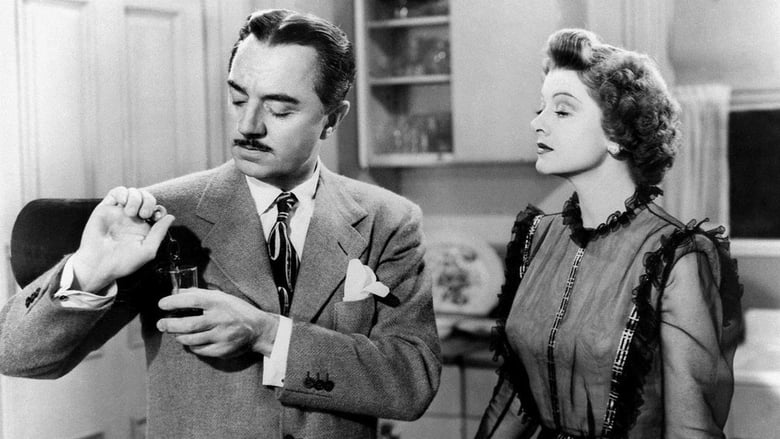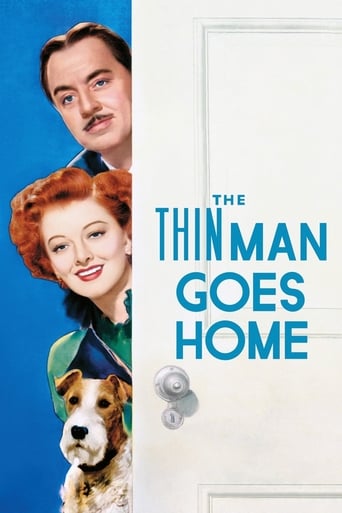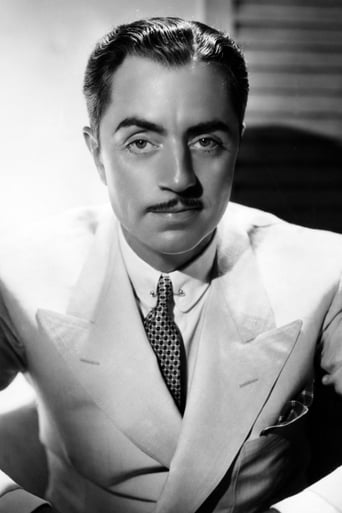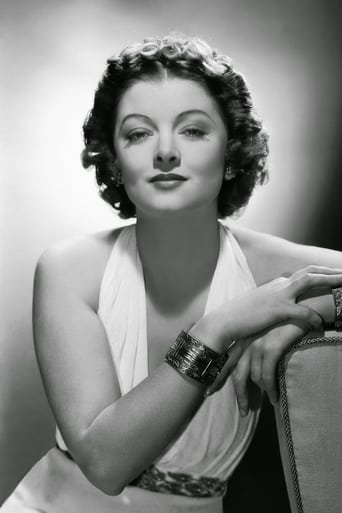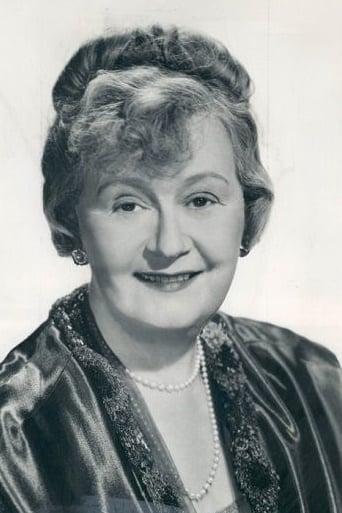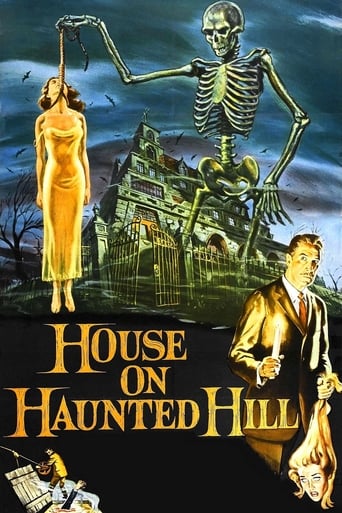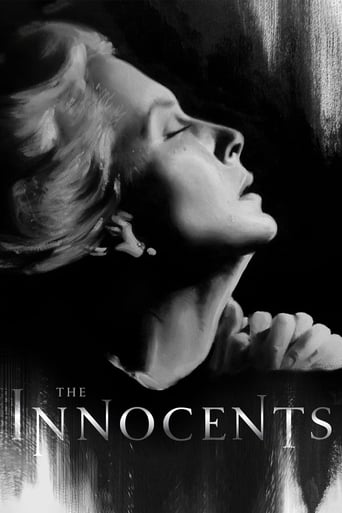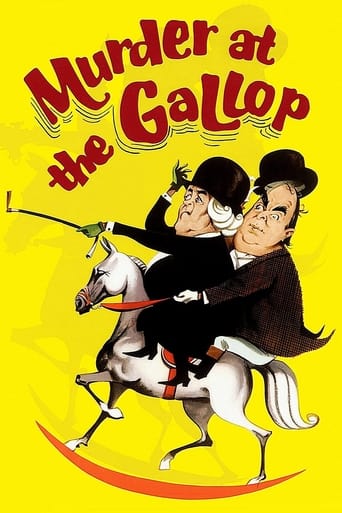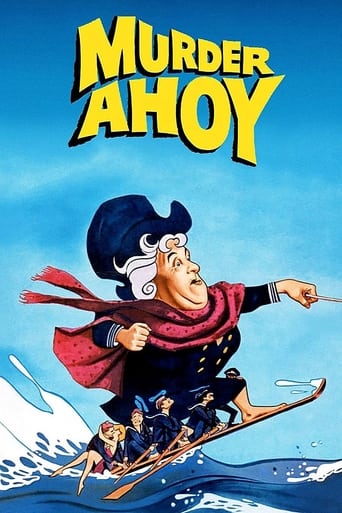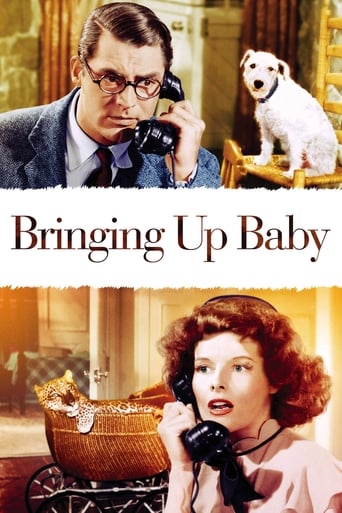The Thin Man Goes Home (1944)
On a trip to visit his parents, detective Nick Charles gets mixed up in a murder investigation.
Watch Trailer
Free Trial Channels
Cast


Similar titles
Reviews
Very Cool!!!
SERIOUSLY. This is what the crap Hollywood still puts out?
Pretty Good
The story, direction, characters, and writing/dialogue is akin to taking a tranquilizer shot to the neck, but everything else was so well done.
I liked the first two, the third not so much. This one, however, worked out fine, even if Nick drank nothing stronger than cider. (Though apple cider comes in both alcoholic and nonalcoholic versions.)Nick brings Nora to Sycamore Springs, the rural town he grew up in, and visits his elderly father and mother. The father is a prominent local doctor who was disappointed that his son chose to become a policeman instead, though Nora responds by telling them what a wonderful detective Nick is-to Nick's embarrassment. Word spreads through town of Nick and Nora'a arrival, and the locals assume they are here to work on a criminal case. Of course, Nick and Nora only came for social reasons-until a man visits the father's house and is shot to death when the front door is answered. Now the pair have a crime to solve.Unlike the previous installments, Asta is helpful this time, and Nick sticks to cider and no longer smokes. The movie was made at the tail end of World War Two, and of course the war effort is a large part of the mystery. And the suspects are more obvious than usual. At least not as convoluted as the third movie.
THE THIN MAN GOES HOME (Metro-Goldwyn-Mayer, 1944), directed by Richard Thorpe, returns William Powell to his popular role of Nick Charles, with Myrna Loy back on screen for the first time since the last installment of SHADOW OF THE THIN MAN (1941). Unlike other screen detectives in series films of "Charlie Chan," "Sherlock Holmes" or "Boston Blackie" having two or three theatrical releases a year, "The Thin Man" has a rare distinction, next to the MGM Tarzan series of the 1930s and 40s, to come up with a new installment once every two to three years. For this fifth of six entries, the original screenplay by Robert Riskin and Dwight Taylor attempts in following the basic pattern more on the initial films, THE THIN MAN (1934) and AFTER THE THIN MAN (1936) by emphasizing more situations on Nick and Nora as opposed to ANOTHER THIN MAN (1939) and SHADOW (1941) where time-out for parenting takes place in between comedic antics and crime solving. With Nick Jr. being "away in school" this time around, Nick, Nora and their dog, Asta, become the center of attention again, sharing their scenes with newly developed characters, namely Nick's parents.The story gets underway where Nick and Nora (William Powell and Myrna Loy) at Grand Central Station getting train tickets from New York to Sycamore Springs where they plan to vacation with Nick's parents, whom he hasn't seen in years. Situations arise when coping with both overcrowded station and train while attempting to sneak their Scottish terrier, Asta, on board where at one point, pass the dog off as a baby. Once at the home of Nick's parents, Doctor and Mrs. Bertram Charles (Harry Davenport and Lucile Watson), their vacation of peace and quiet turns to crime solving when Peter Berton (Ralph Brooks), a landscape painter, is suddenly shot and killed by a silencer on the doorstep of Dr. Charles. With Nick's birthday approaching, Nora buys a painting of a windmill from Willie Crump (Donald Meek), who originally promised it to Edgar and Helena Draque (Leon Ames and Helen Vinson). Because the painting holds an important clue to the mystery, Draque follows Nora hoping to buy it from her while Nora follows Nick's friend, Brogan (Edward Brophy), a traveling greeting card salesman, whom she suspects to be the killer. Going on with his sleuthing, much to the dismay of Police Chief MacGregor (Donald MacBride), Nick stumbles upon another murder, that of "Crazy Mary" (Anne Revere), a town character living in a shack, who may have some connection with Peter Burton. By gathering prominent citizens for questioning, including Laura Ronson (Gloria DeHaven), a society girl; Sam Bronson (Minor Watson), her father; Doctor Bruce Clayworth (Lloyd Corrigan), Nick's former classmate; Willoughby (Morris Ankrum), Nick risks his father's chances of receiving financial support for a new hospital, causing more complications between father and son. With some more mystery to uncover, it appears Nick and Nora don't get to see much of Sycamore Springs.While there was never any mention about Nick's parents and his background, much of it is brought out in this installment. It's revealed that Nick's father has always wanted him to become a doctor like himself, not his true profession of a "policeman." Nick, usually having a passion for liquor, has "reformed" by drinking only cider. His deductions in crime solving still rank high as in previous installments, and is no disappointment here. The performance of Nora, on the other hand, is slightly altered from fun-loving sophisticate to silly spouse. Her demonstration and re-enactment on Nick's previous cases to her in-laws doesn't come off as funny as it deserved to be. One scene where Nick paddles Nora on her behind with a folded newspaper may seem out of character, but the use of assortment oddball characters as "Crazy Mary," Brogan and Hilda (hilariously played by Anita Bolster), the housekeeper, is a welcome traditional trait for this series.With more comedy inserted into the mystery than before, some slapstick was thrown in for good measure, ranging from Nick's pratfall at while trying to keep Asta from running loose at the train station, to Nora unwittingly becoming part of a wild jitterbug dance with a young sailor at a nightclub. As mentioned earlier, there's no Nick Jr. in this installment. Had Little Nicky been written in as part of the family vacation, it's a wonder whether Dickie Hall from SHADOW would have resumed his cutesy role, or offered to another boy actor in the Nicky age range of eight as Jackie "Butch" Jenkins could have been a possibility. Overall, the absence of Nicky Jr. did help keep the story on a balanced level. Still quite overlong at 100 minutes, THE THIN MAN GOES HOME, though not in the same league as the initial two produced a decade ago, is, for fans of the series, really not so bad.Distributed to home video in the 1990s and later DVD as part of the "Thin Man" collection a decade later, this and other "Thin Man" mysteries can be seen frequently on Turner Classic Movies cable channel. Next chapter: SONG OF THE THIN MAN (1947). (***)
Hands down, the best mystery and BIGGEST surprise ending in the series. The jokes and repartee are first class, lots of excellent supporting roles and by keeping a tight rein on the 'Thin Man Formula' it keeps everything fresh. You've got just enough drinking jokes (Nick's on the wagon because they're visiting his folks) but the scenes when his dad thinks he's drunk make up for it. Mercifully, they left Nick, Jr. at home - family stuff hurts the chemistry of Nick and Nora more than anything. Also,there is exactly the right amount of Asta. And of course, as everyone suspects, Asta is their 'real' child.Not as many rough characters interacting with Nick in this one, but Nora herself inadvertently lapsing into criminal lingo as she tells the story about 'Stinky Davis' to her staid in-laws is even better! Also, you got the wonderful Edward Brophy, who specialized in comic gangster roles, posing as as the most improbable of 'greeting card salesmen' - his 'made up shop talk' is hilarious. And the great Anne Revere (later black-listed) acts to the hilt in a small but juicy dramatic role - you'd swear that 'Red Annie' was doing Brecht! I dare you to find one minute of Anne Revere on screen in ANY film in which she was not TOTALLY mesmerizing.Director Thorpe was not quite 'One-Shot Van Dine' the best Thin Man director but he seldom puts his foot wrong. Boring camera placements and indifferent staging if you care about that, but when your listening to Nick and Nora sparring you don't really notice.
The Thin Man goes home, is probably the most panned of the Nick and Nora series, but for some reason I find it the most enjoyable. I kind of think of this as a Sherlock Holmes meets Leave it to Beaver. A lot more gritty undercurrent in this one, but also more of a real life feel to it as well. Most of the other films make me feel like I'm watching a high society gala, whereas this film gives me a chance to see the down to earthness of Nick and Nora. They may be rich beyond compare, but they don't come across as snotty or bitchy. They're wholesome and kind. Fun and vibrant. These are the uptight aristocrats so common in British film and novel, nor are they the arrogant and completely oblivious nouveau rich of Hollywood. See Paris Hilton, and a bevy of other born into wealth starlets who have an air of entitlement about them, never having had to earn for themselves. They come across as completely shallow and callous, whereas the Nick and Nora characters are just schleps with money. They are cultured, but not afraid to be amongst the people. With all the wealth they have, they can spend their vacation in a ritzy hotel, but would rather stay in Nick's childhood home, and visit with his old school chums. The mystery itself isn't bad either. Although improbable, it does maintain an air of believability. Some great character actors round out the cast to really make this the most complete of the thin man films.

